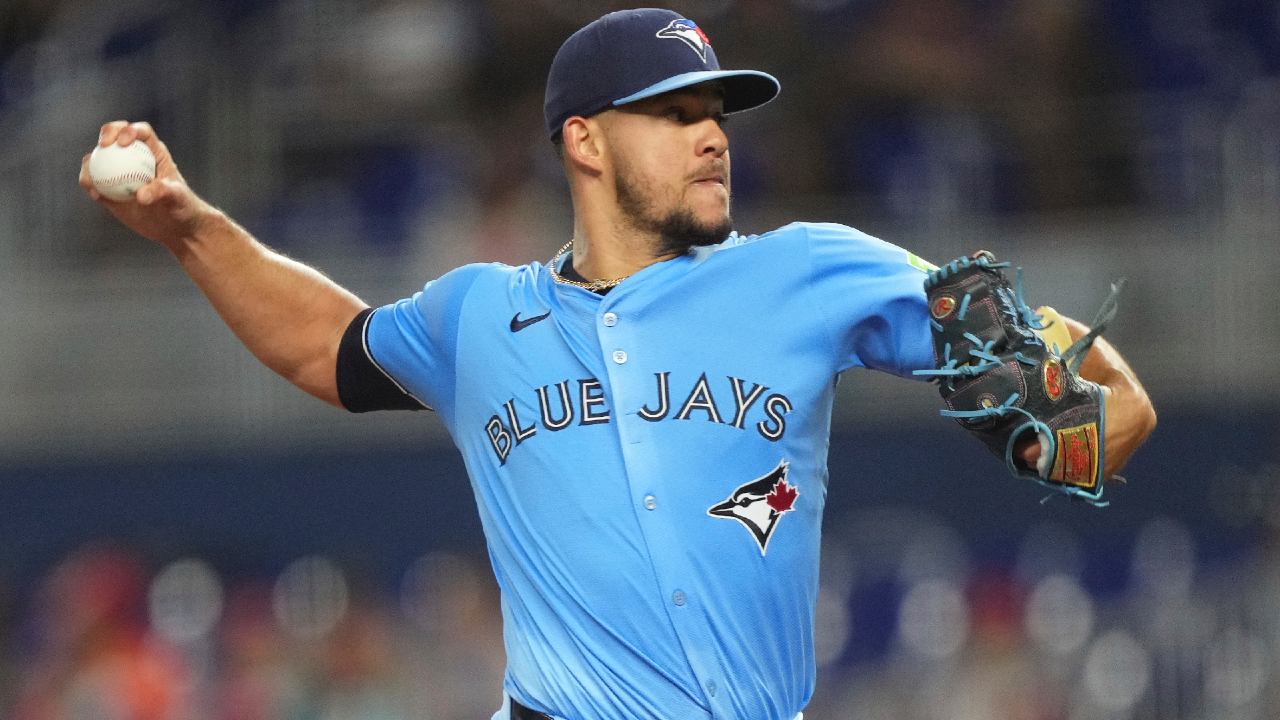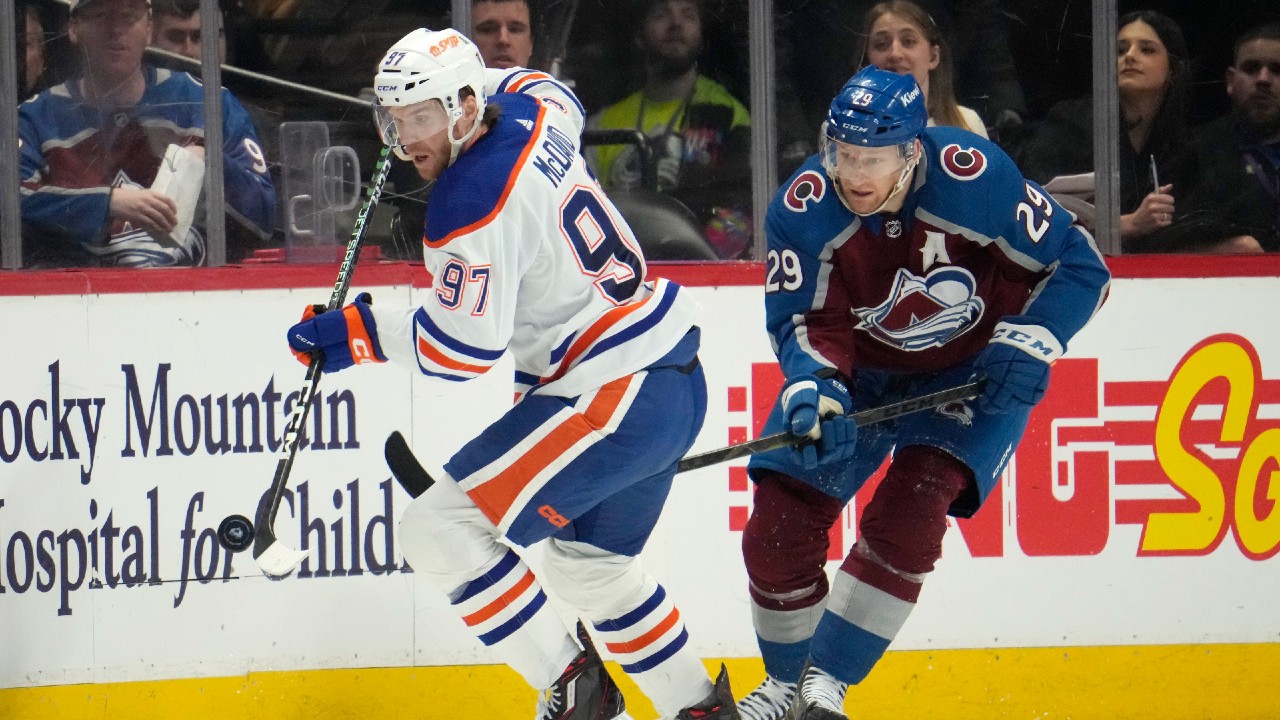
When COVID concerns put a stop to the 2019-20 NHL season, the Edmonton Oilers and Toronto Maple Leafs sat tied in a telling defensive category, averaging around 2.7 goals against for every 60 minutes of 5-on-5 play. That number doesn’t sound awful, but sprinkle in somewhere between 40-60 power play goals against (as is common in a full NHL season), and suddenly you have to score a whole lot just to get to the break-even number.
I say “tied” for simplicity’s sake, technically the Leafs were .01 worse in that category at 2.71. The Senators were right there with the Oilers and Leafs, while the Panthers, Sharks, Devils and Red Wings were the only teams worse in this stat — AKA the draft lottery teams.
Shots against per 60, unblocked shot attempts per 60, expected goals against per 60, almost all the “fancy” stats had both Toronto and Edmonton in the bottom half of the league.
The Leafs and Oilers stunk defensively, full stop.
Those are all just “against” numbers at 5-on-5 though. By and large, if you sort the numbers for total percentages (like goals for percentage, all strengths), both teams climb into the better half of the league, because if we know anything about these teams, it’s that they can score – particularly the top lines. The Oilers’ special teams were absurdly good last year, and the Leafs have balanced out their weak defensive numbers by playing high event hockey both ways at all strengths.
It’s really those elite guys who compel me to compare these operations at all. The Oilers have two Hart Trophy winners age 25 and under, to go with Ryan Nugent-Hopkins and Kailer Yamamoto. The Leafs have five players in their top six who went first, first, first, fourth and eighth overall. Both teams go as those groups go, they rely on them to give them a chance, and both teams get shut down when their top names aren’t going.
Both teams have for some years now looked at their back ends, squinted, and said “But if he has a career year, and that guy takes a step, and everyone stays healthy, our D isn’t that bad.”
And so it goes with Edmonton and Toronto. They’re two speedboats constantly using offence to bail water from porous defences, never quite sinking but not winning any important races either. In the sprint-length race that is the 2021 NHL regular season, the team that figures out how to finally patch those holes, rather than bail faster, is far more likely to accomplish their goals than the other.
Just a few months back in the play-in round against the Chicago Blackhawks, the Oilers scored 15 times in four games and won … once. The Leafs have lost three straight playoff series in deciding games, conceding a total of 15 goals against in those three games.
I realize I’m beating the dead horse here, but both teams have long identified their team weakness, and have sought to improve it. The Oilers have drafted well and have prospects on the way, while the Leafs have moved aggressively to add established NHLers to their back end.
What we’re left with at this point is asking what the likelihood is of that improvement happening?
Will the Oilers be able to get those holes patched?
To date this season the Oilers have allowed 15 goals through four games, which is worse than their goals against per game last season, though granted it’s absurdly early.
Their odds took a significant blow when it was ruled that their best defenceman, Oscar Klefbom, would be out for the season, which put them behind the eight-ball immediately.
It also didn’t help that what was likely the Oilers’ off-season plan – signing Jacob Markstrom – fell through entirely, leaving them with a goaltending duo that will almost certainly finish in the statistical bottom-third of the league.
I summed up my questions about the Oilers on Twitter a few nights back:
Are there any reasons to think the Oilers should keep more pucks out of the net since it submarined them vs the Blackhawks? Not being sarcastic. Development of some great young D, maybe? Lost Klefbom, added Barrie/Koekkoek. Turris, Puljujarvi, Kahun, Shore up front?
— Justin Bourne (@jtbourne) January 17, 2021
Sufficient answers never came.
So far this season they’ve already scratched defencemen Ethan Bear and Caleb Jones, in hopes of plugging in more defensive defensemen in Adam Larsson and William Lagesson, but it’s unlikely that’s going to be the long-term fix for this team this year.
There are some positives, though. For one, defending is a mindset and can be coached, and the Oilers have a good one in Dave Tippett. But more than that, I think the Oilers have just had a rough start, and that a pretty good Montreal Canadiens team got the better of them in ways that would be internally eye-opening, but not worthy of panic. Sometimes it’s as simple as “our group can play better than that,” and there’s at least some element of that here.
Klefbom will be sorely missed, and the goaltending is unlikely to become a bright spot, but I do believe that somewhere in this mix is a six-man group that can allow the forwards to do what they do enough – outscore their problems – to keep them at the very least a playoff team:
Nurse-Koekkoek
Russell-Barrie
Bear-Jones
Lagesson-Larsson
I don’t think there’s much reason to believe it’s going to be great defensively in Edmonton. But with all their talent, it only needs to be good.
Will the Leafs be able to get those holes patched?
If you talk to their die-hard fans, they already have. There’s a belief among the fanbase that TJ Brodie puts them in a spot that gives the team a very good top-four (with Morgan Rielly, Jake Muzzin and Justin Holl), and that surely there are enough options amongst the rest to find a good pair (that being Zach Bogosian, Travis Dermott, Rasmus Sandin and Mikko Lehtonen). And it’s possible those fans are right.
The less confident may consider how Rielly defends with an offensive lean, and the name Justin Holl in there – and the odd rough Brodie showing – and go “Yeah, that’s your plan? Those are the materials that are going to keep the water from rushing in?”
Freddy Andersen remains a wild card for this season, but he’s not far removed from playing excellent hockey, so there’s a “wait and see” element in net.
Up front, the Leafs have shuffled their lineup to become more defensively stout as well. John Tavares is being deployed almost exclusively in an offensive role so far this year, leaving the heavier matchups for their newly formed “shut-down” group of Ilya-Mikheyev-Alex Kerfoot-Zach Hyman. It’s another test case, but it’s at least a plan that isn’t just hoping things change on their own, somehow.
The rest of the forward group will never have a defensive bent, but you can at least see the team has made a real effort to patch up their defensive shortcomings of yore.
In the end, that’s all it comes down to for these two talented teams: Will they make keeping the puck out of their own net as much of a priority as putting it in the other one?
There’s no shortage of coaches who’ll tell you that more offence comes when you’re in good positions under the puck, and numerous Stanley Cup contenders over the past decade have proved that true. It’s a tough sell from the coach, though.
As Edmonton and Toronto get set to do battle twice in the next three nights, most fans are excited to see explosions of offence all over the ice.
But I promise you, behind closed doors, both teams are prioritizing the opposite.





